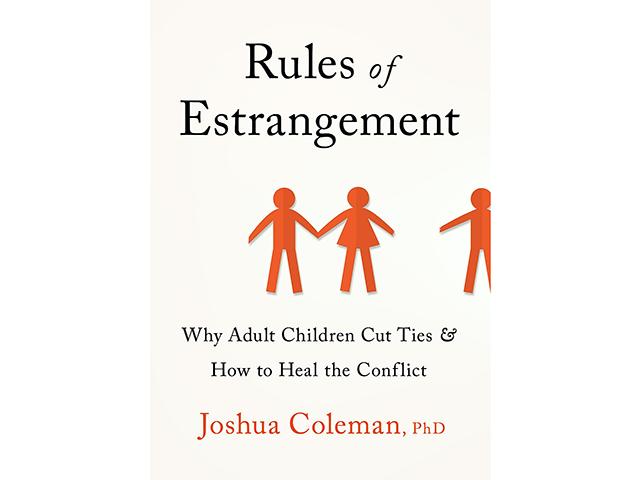Family Business Matters
Farm Family Ties: Guidelines for When You're Cut Off
"Rejection from the person whose opinion and love you care the most about ... makes the certainties of life feel precarious and unraveled." -- Joshua Coleman, Ph.D.
Family estrangement is a topic I've written about several times during the years, and for good reason: It's a common experience in rural families and family businesses. Being cut off from a family member, especially one of your adult children, is both painful and embarrassing, and there are few people with whom you can discuss the issue.
Two books published in 2020 offer advice on how to heal estrangement. Karl Pillemer's "Fault Lines: Fractured Families and How to Mend Them," which I wrote about in March 2021 (contact me for a copy), is a good primer on the sources of estrangement and pathways to reconciliation. Here, I add the perspective of Joshua Coleman through his book, "Rules of Estrangement: Why Adult Children Cut Ties & How to Heal the Conflict."
SOCIETAL CHANGES
Coleman begins by helping us understand some of the historical and cultural shifts that give rise to the increase in estrangement. For example, he cites the trend toward individualism, noting that "emphasis on loyalty to the family unit has been replaced with the pursuit of individual fulfillment." In that pursuit, individual pain is often seen as having its roots in the family system, particularly in the parental relationship. "Parents are more important than ever in the narrative of how young adults understand themselves," Coleman writes.
P[L1] D[0x0] M[300x250] OOP[F] ADUNIT[] T[]
A related trend is the understanding of what comprises a "good" childhood and, thus, good parenting. Coleman argues that what today are considered harmful acts by parents would not have been seen as harmful in prior generations. Problems or issues in the adult child's life today are at times traced back to their parents. It doesn't matter whether that causal link is real to the parents; it's real to the child, and parental cutoff may be the result.
EMPATHY IS KEY
The ability to identify with the feelings of someone else is of the utmost importance.
"Empathizing with the child's complaint or perceptions, however at odds these are with your own ... often determines whether they ever see their children or grandchildren again," Coleman says. The ability to acknowledge your child's belief that you, as a parent, caused pain in his or her life is central to moving forward. Understanding and communicating that you caused pain, even if pain was never your intention, is difficult but necessary to move forward.
MAKING AMENDS
Coleman promotes parents "making amends" with their adult children by writing a letter to them. He argues that doing so shows you care and you are courageous, and it clarifies how you see your responsibilities in the relationship. It also shows that two people can see the same events differently, while helping the child see him -- or herself more clearly as an adult -- that he or she is in a relationship of equals.
But, many parents find this hard. They feel they may not have done anything wrong, or if they do feel bad, the letter may make them feel even worse about themselves. Some parents feel a letter might be used against them or will give credence to the child's immaturity. Mistakes that parents make when writing a letter include not going far enough in their admission of causing pain, sounding defensive or resorting to explaining, or even blaming, instead of empathizing.
If you have experienced cutoff from your child, you know the agony of rejection by a person into whom you've poured your life. Recovering from that experience means giving your child a chance to express why he or she has chosen estrangement. It means acknowledging your contribution and looking for opportunities, however slight, to reestablish a pattern of interaction. The two books mentioned here offer good ideas on how to begin the journey of reconciliation.
**
Write Lance Woodbury at Family Business Matters, 2204 Lakeshore Dr., Suite 415, Birmingham, AL 35209, or email lance.woodbury@pinionglobal.com.
(c) Copyright 2022 DTN, LLC. All rights reserved.




